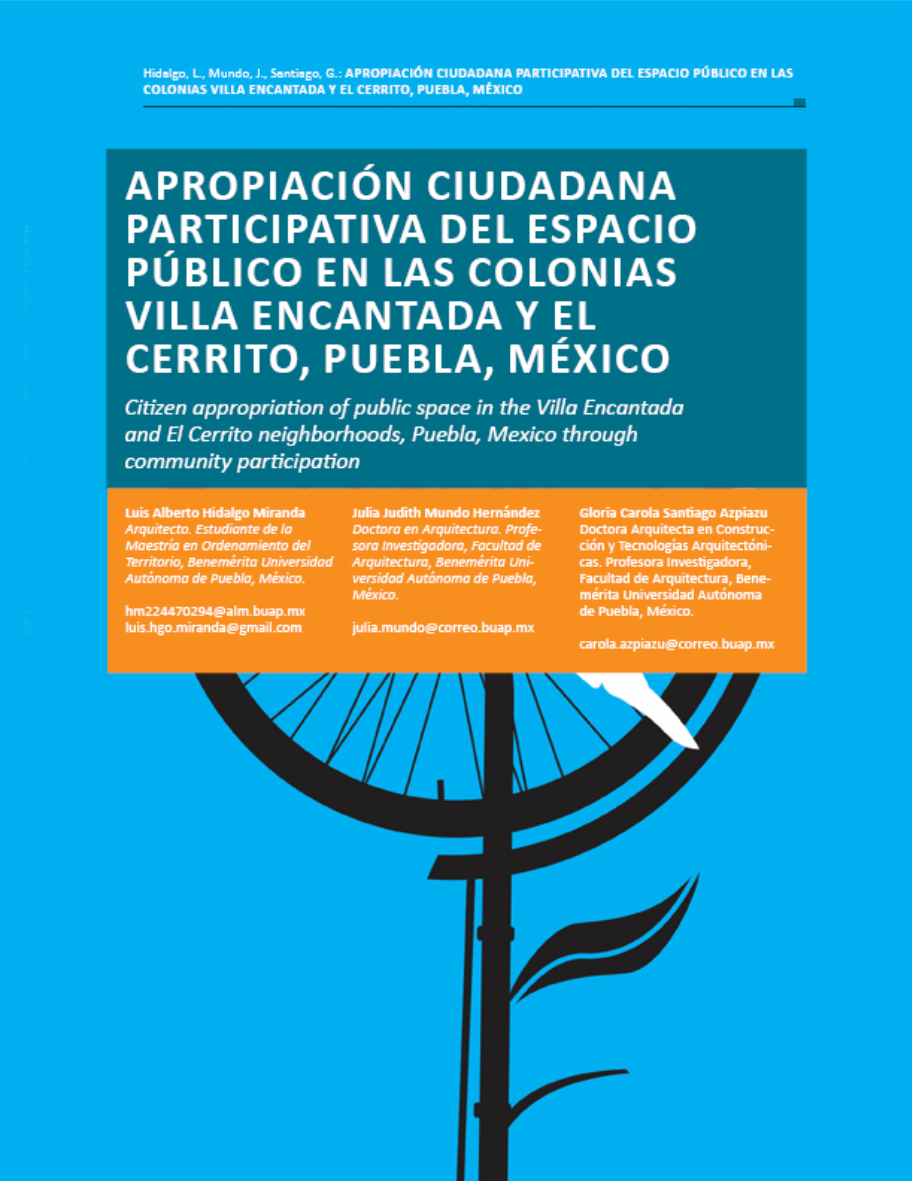Citizen appropriation of public space in the Villa Encantada and El Cerrito neighborhoods, Puebla, Mexico through community participation

Published 2024-10-05
Keywords
- Appropriation of Public Space,
- Participatory Design,
- Neighbourhood dynamics,
- Integrative Wellbeing,
- neighbourhood-scale park
How to Cite

This work is licensed under a Creative Commons Attribution-NonCommercial-NoDerivatives 4.0 International License.
Abstract
This research focuses on the appropriation dynamics of public space in the Villa Encantada and El Cerrito neighborhoods, located in the south-central part of the municipality of Puebla. These neighborhoods only have one public recreational space: the “El Elefante” park, which is a neighborhood-scale park of approximately 3,000 m2. The problem identified is the underutilization and disuse of the park by the residents of the neighborhood due to the lack of neighborhood participatory dynamics and the inadequate physical-spatial conditions of the park. This research has a social focus on seeking to promote citizen participation to generate appropriation of the
park. Therefore, a methodology based on the general theory of complex systems is used. This systemic approach will allow us to understand the problem posed by building a system based on the understanding of the factors that promote it and how these same factors interact with each other, even promoting one another. Similarly, this approach allows us to build a solid theoretical base based on the review of the concepts of “public space”, “Social Space”, “Appropriation of space” and “Integrative Well-being”.
